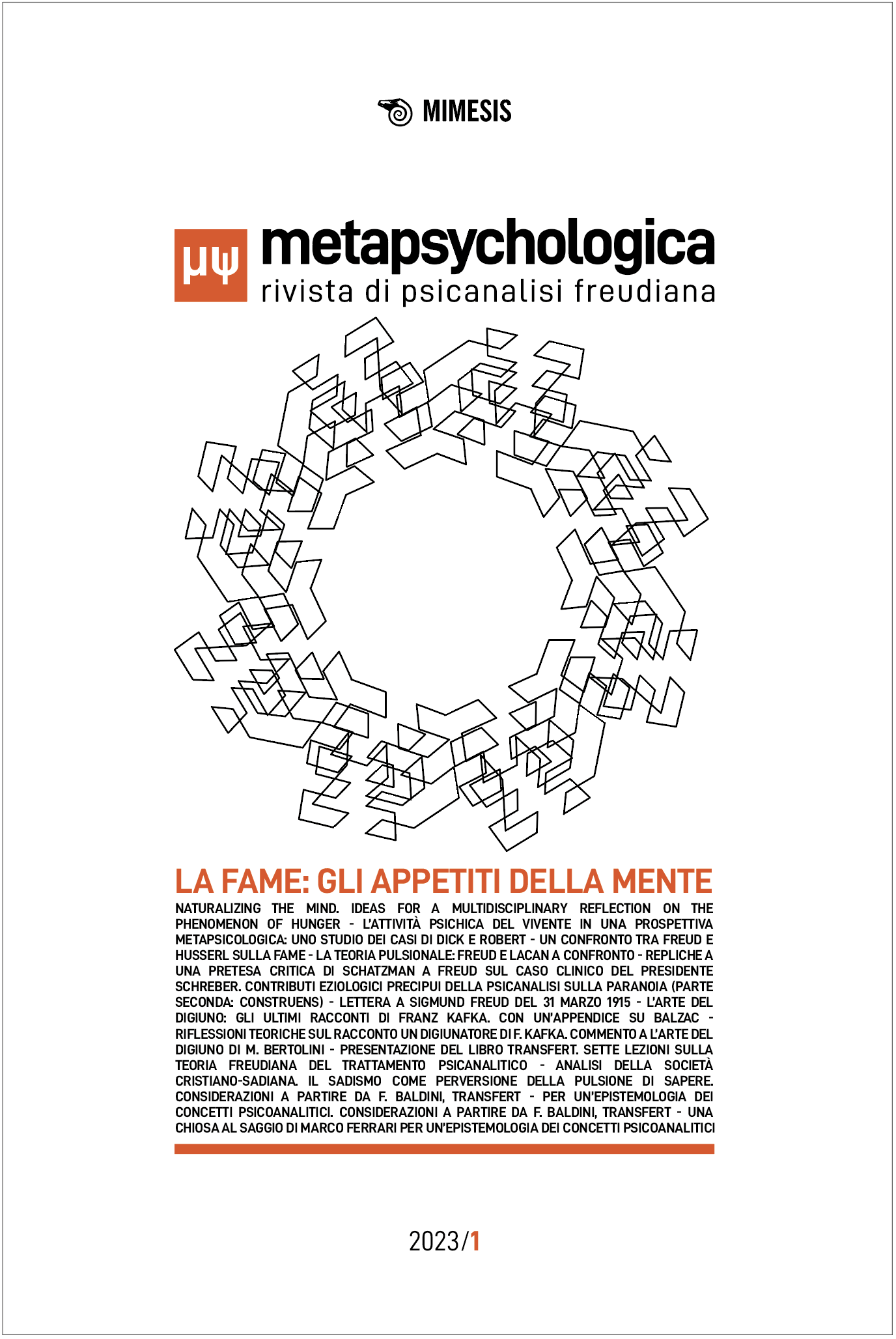Abstract
A comparison is made between Freud’s and Husserl’s conceptions on the topic of drives and, in particular, hunger. Both do not envisage hunger only as a physiological concept. In fact, from Freud’s elaboration it appears that hunger, as a self-preservation drive, also has a fundamental relevance from a psychic point of view, as it is a directive drive in the original constitution of the subject; in Husserl, however, hunger is placed at the origin of the intentionality that characterizes the relationship of the transcendental subject with the world, within a teleological dimension of Aristotelian origin. In the comparison between the two approaches, the cognitive loss that is produced by sacrificing the clinical approach, as in Husserl unlike Freud, is underlined.

